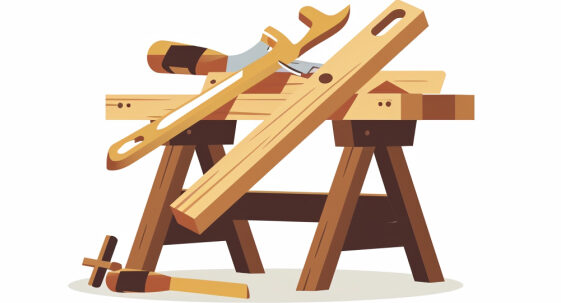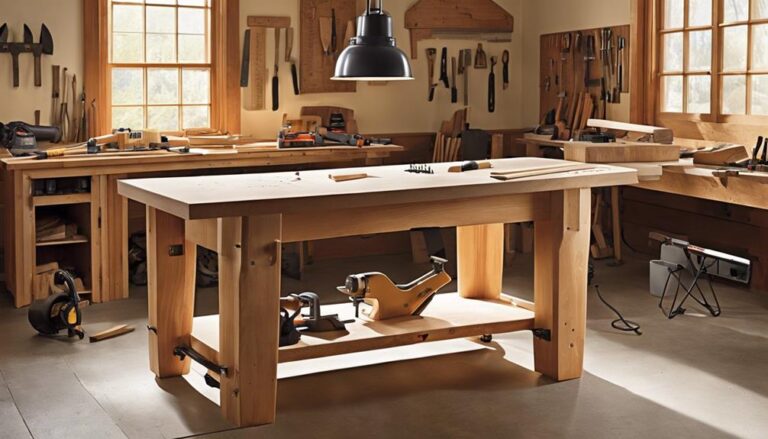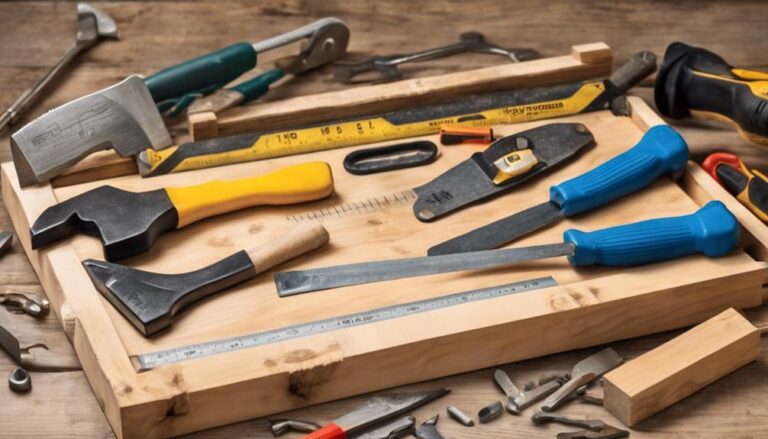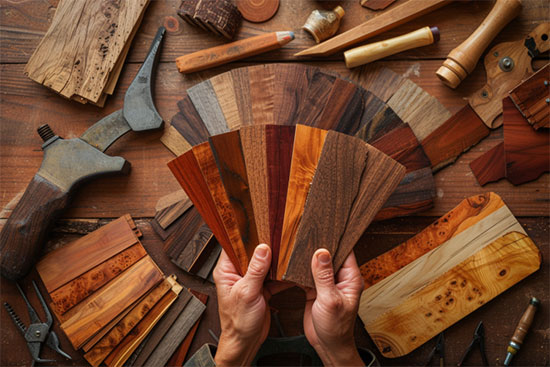As the old saying goes, ‘measure twice, cut once,’ and in the world of precision woodworking, having the right measuring tools in your arsenal can make all the difference. You’re likely familiar with the basics like a tape measure and a square, but there’s a whole world of specialized tools designed to elevate your work from good to exceptional.
From the indispensable combination square to the precision of digital calipers and the luxury of a laser distance measurer, choosing the right tools not only affects the accuracy of your measurements but also the quality of your final product.
Contents
Understanding Measuring Tools
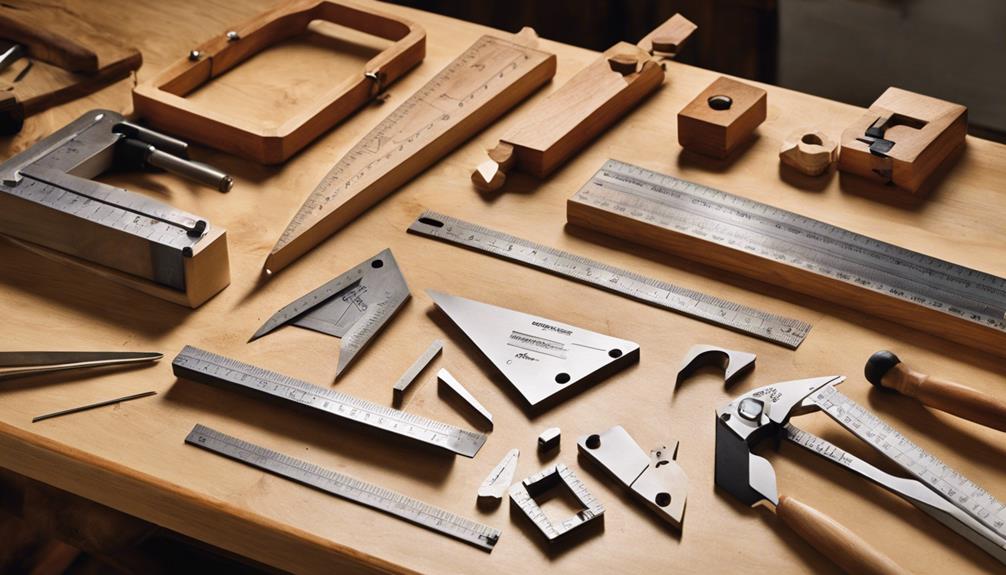
To fully grasp the essence of precision woodworking, it’s crucial to understand how measuring tools like combination squares, precision triangles, and digital calipers play pivotal roles in enhancing project quality and accuracy.
These tools aren’t just accessories; they’re fundamental components for any woodworker aiming to achieve precise cuts and joints. A combination square, for instance, offers you the ability to measure straight lines and verify right angles with unmatched reliability.
Meanwhile, precision triangles have been indispensable for marking 90 and 45-degree angles for millennia. Add to this the modern marvel of digital calipers, which allow you to measure thicknesses and diameters with digital precision in both metric and imperial units.
Don’t overlook marking gauges either; these tools are essential for accurate layout and marking, especially when preparing mortises and tenons. Together, these measuring tools form the backbone of precision woodworking, ensuring each piece of your project aligns perfectly.
Essential Measuring Instruments
Building on the foundation of precision tools like combination squares and digital calipers, let’s explore the essential measuring instruments every woodworker needs for accurate measurements, marking, and layout in their projects.
Rulers and measuring tapes are fundamental, ensuring you maintain accuracy and consistency across your work. Calipers, offering precise measurements in both metric and imperial units, are indispensable for assessing thickness, width, and depth with unparalleled accuracy.
Moreover, layout tools, including squares, are crucial for guaranteeing right angles and straight lines, which are imperative for precise cuts and joints. These tools collectively form the backbone of your measuring, marking, and woodworking endeavors, ensuring every project meets your high standards of precision and craftsmanship.
Advanced Measuring Gadgets
Delving into the realm of advanced measuring gadgets, you’ll find digital calipers indispensable for achieving the utmost precision in your woodworking projects. These tools, with their ability to offer precise measurements in both metric and imperial units, are essential for ensuring your work is both accurate and consistent.
They not only measure thickness, width, and depth with high accuracy but also come with features like data hold for added convenience. Investing in such gadgets can significantly elevate the quality of your work.
| Feature | Benefit |
|---|---|
| Instant Readings | Saves time |
| Metric & Imperial Units | Versatility |
| Data Hold | Convenience |
| High Accuracy | Precision |
| Depth Measurement | Comprehensive |
Combining digital calipers with traditional tools like squares, bevel gauges, marking knives, and saw guides, you’ll enhance both the measuring and layout aspects of your woodworking projects.
Choosing the Right Tools
After exploring the advanced gadgets that can elevate the quality of your woodworking, let’s focus on how to select the right tools that will ensure your projects are both accurate and efficient.
- Combination Squares: Essential for precise measurements, ensuring accuracy and repeatability.
- Digital Calipers: Critical for measuring thickness, width, and depth with exact precision.
- Marking Gauges: Utilize these for consistent and accurate marking of mortises and tenons.
- Precision Triangles: Versatile tools for scribing 90 and 45-degree angles, crucial for jointer fence alignment.
- Center-Finding Ruler or Feeler Gauge: Opt for these to enhance precision in various woodworking tasks.
Choosing the right tool is foundational in achieving the desired accuracy in your woodworking projects.
Maintaining Measuring Accuracy
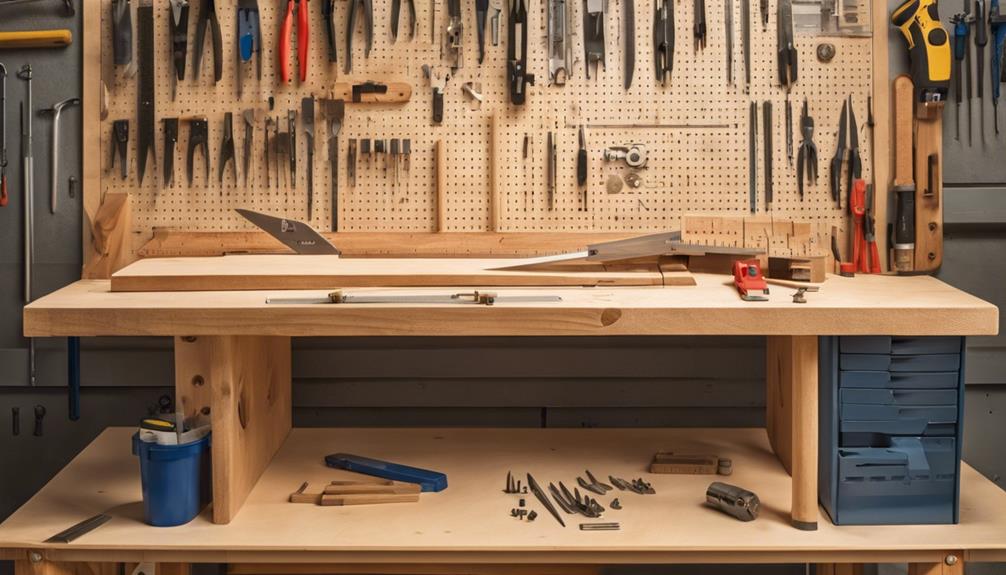
Ensuring the longevity and precision of your woodworking measuring tools requires regular calibration against a known reference. Your combination of squares, tape measures, and tools with a hook on one end demand meticulous attention to detail. Store them in a dry, secure place to avoid warping or damage that could skew measurements.
Mishandling or dropping your tools can throw off their delicate calibration, affecting how accurately they guide a saw blade or router bit. Regular cleaning is crucial; dust or debris can impair their function, leading to inaccurate cuts. Invest in protective cases or sleeves to shield these precision instruments from wear and tear.
Conclusion
In conclusion, precision in woodworking isn’t just about skill; it’s also about the tools you use. Investing in essential tools like a combination square, and upgrading to advanced gadgets like digital calipers, can elevate your projects from good to exceptional.
Always opt for quality brands like Woodpeckers and iGaging to ensure accuracy. Remember, maintaining your tools is as crucial as choosing the right ones. By following these guidelines, you’ll ensure your woodworking is accurate, efficient, and of the highest quality.
